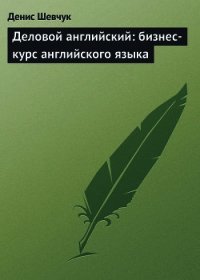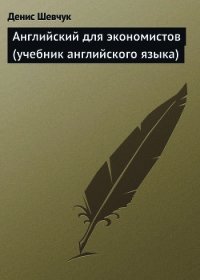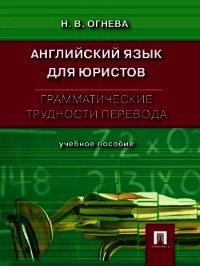Английский язык: самоучитель - Шевчук Денис Александрович (лучшие книги онлайн txt) 📗
Objective:
To leave a positive impression, of someone who's capable and efficient.
The basic problem
Lots of research shows that the biggest impact in spoken-word communication is visual. Some researchers say it's as much as three-quarters of the total. Yet on the phone we don't have any of that. Our voice has to do all the work.
If we want people at the other end to form a good impression of us, we need to give more thought to business phone calls than we do when we're just chatting to our friends.
Your calling them
There are two main possibilities.
· The job advert asks you to ring the company for an application form.
· Or, usually a little later in the process, you have to ring up and arrange a time for an interview.
Either of these cases can be entirely straightforward – just a matter of getting a small administrative task done. But depending on who you speak to, there could also be questions of a sort you wouldn't otherwise expect until you fill in the application form or go for an interview.
These could be either factual – «what's your educational background?» – or human – «what interested you particularly about this job?»
It makes sense to be prepared before you make the call, just as you would before an interview.
Часть 2
LESSON 1. At the weekend

LEAD-IN
1. Answer the questions about yourself.
Напишите ответы на вопросы о себе.
1. What do you usually do at the weekend?
2. Do you always work at weekdays?
3. Which is your favourite day of the week? Why?
4. When do you usually cook your meals?
5. Do you like to go out at the weekend? Where to?
6. What did you do last weekend?
7. What would you like to do next weekend?
8. Is the atmosphere peaceful in your town?
9. Do you prefer staying with your friends or your family at the weekend?
10. Which places are the most attractive in your town?
2. Complete the sentences given.
Дополните предложения.
1. At the weekend my wife prefers ...
2. My children are interested in ...
3. I do sport because ...
4. We often go out to ...
5. At the weekend we never ...
6. We watch television ...
7. Our friends ...
3. Make up questions. Start them with the words given.
Составьте вопросы к данным предложениям, начинающиеся с данных вспомогательных глаголов или вопросительных слов.

4. Find one word in each line that shouldn’t be there. The first has been done for you.
Найдите одно лишнее слово в каждой строчке. Первая строка выполнена как пример.

FOCUS ON VOCABULARY
Активный словарь
Nouns
1. clothes – одежда (всегда во множ.ч.)
Her clothes are elegant. – Ее одежда элегантна.
She wants to buy some new clothes. – Она хочет купить новую одежду.
2. dish – блюдо
to wash the dishes – мыть посуду
3. baseball – бейсбол
to play baseball – играть в бейсбол
4. activity – деятельность, активность
activities – мероприятия
5. barbecue – пикник с традиционным блюдом из мяса
6. garden – сад, огород
gardener – садовник
7. team – команда
team game – командная игра
8. uniform – форменная одежда, форма
to wear a uniform – носить форму
9. agency – агентство
advertising agency – рекламное агентство
10. interview – интервью
job interview – собеседование при приеме на работу
11. concert – концерт
jazz concert – концерт джазовой музыки
12. wedding – свадьба
wedding party – свадебный вечер
13. event – событие
15. weekdays – рабочие дни
at weekdays – в рабочие дни
16. winter – зима
17. summer – лето
18. autumn (Am. fall) – осень
19. spring – весна
20. game – игра
computer game – компьютерная игра
22. people – люди
23. programme – программа
24. channel – канал
TV channel – телевизионный канал
25. midnight – полночь
at midnight – в полночь
Adjectives
1. special – особый, особенный
nothing special – ничего особенного
2. young – молодой
young people – молодежь, молодые люди
3. clean – чистый
4. dirty – грязный
5. serious – серьезный
6. clever – умный
7. friendly – дружелюбный
8. famous – известный
9. happy – счастливый
Verbs
1. to miss – пропустить; скучать по
to miss classes – пропустить занятия
2. to clean – чистить, очищать
to clean the room – убирать комнату
3. to wash – мыть
4. to happen – случаться, происходить
It happened yesterday. – Это произошло вчера.
5. to involve – включать в себя
It involves two sets. Она включает два тура.
6. to spend (spent) – проводить (время), трать (деньги)
I spent my holidays there. – Я провел каникулы там.
7. to wear (wore) – носить (одежду)
I never wear jeans. – Я никогда не ношу джинсы.
8. to try – пытаться, стараться
I try to do it very well. – Я стараюсь делать это очень хорошо.
Adverbs
1. late – поздно
2. early – рано
3. together – вместе
4. quite – совершенно, совсем
quite a bit – совсем чуть-чуть
5. outside – снаружи, на открытом воздухе
6. seriously – серьезно
Word Combinations
1. exercise class – учебный класс
2. go sailing – заниматься плаванием (под парусом), отправиться в плавание (на судне)
3. at least – по крайней мере
4. not at all – не за что
5. to be dressed up – быть нарядно одетым
6. point of view – точка зрения
7. take it seriously – воспринимать что-либо серьезно
8. rather good – достаточно хороший
1. Match the halves of the words.
Соедините половинки слов.

2. Make up the sentences of your own using the following words (three in one sentence).
Составьте предложения, используя данные слова (по три в каждом из предложений).

3. Complete the gaps with a suitable word or phrase from the Word Box.
Вставьте пропущенные слова и фразы.

4. Translate into English.
Переведите на английский язык.

Language focus 1
Adverbs of frequency
Наречия частотности

Для наречий «один раз» и «два раза» существуют особые формы «once» и «twice». Для всех остальных наречий – формы three times, four times, и т. д.




